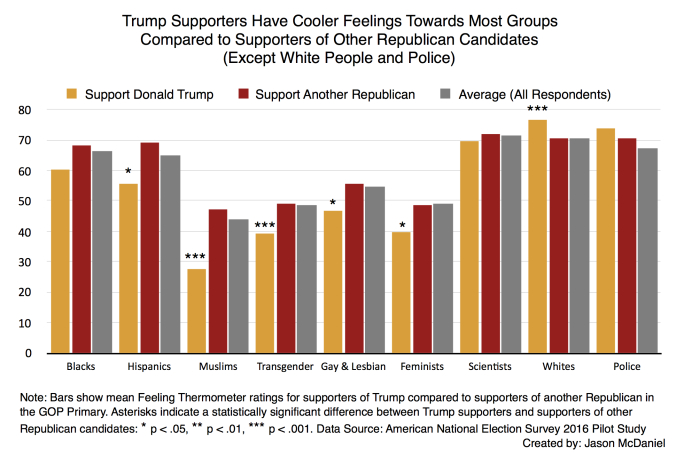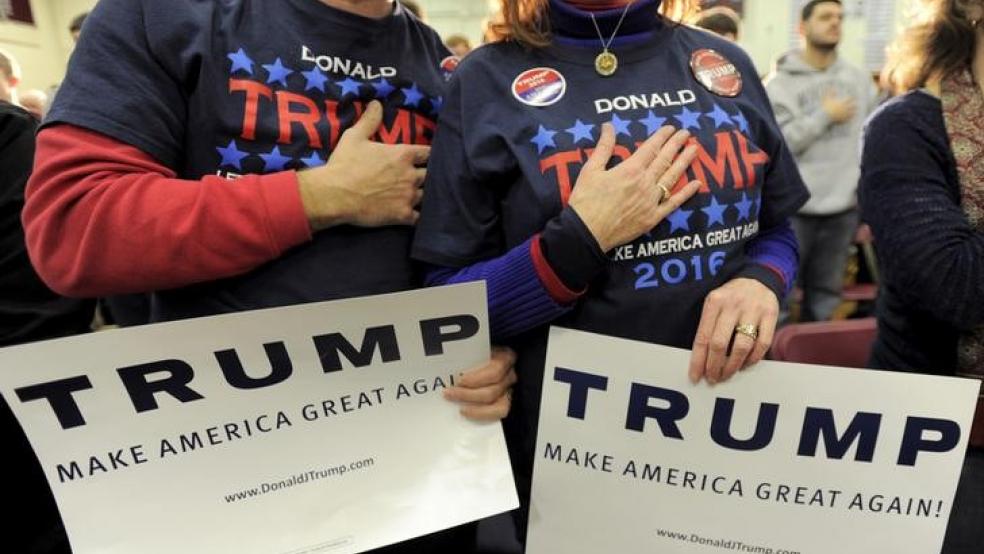In his regular Republican House Leadership press conference this morning, Speaker Paul Ryan (R-WI) was asked about a recent poll that found more Republicans say they trust billionaire presidential candidate Donald Trump to lead the GOP than say they trust Ryan, currently the most powerful elected Republican leader in the country.
Ryan laughed off the finding, saying, “I hope it’s Donald Trump -- he’s getting the nomination. He’s wrapping up the nomination. Good lord, I hope it is because the person who’s getting the nomination of our party is the person to lead our party.”
Related: Clinton’s Most Important Weapon in Her Battle Against Trump
But Ryan’s dismissal of the question masks what looks like growing uncertainty among erstwhile party leaders as the political ground shifts under their feet in the age of Trump.
You could see it on Sunday, in the obvious discomfort with which Republican National Committee Chairman Reince Priebus tried to defend Trump from allegations that he had mistreated women and lied about impersonating a public relations representative to deceive journalists.
Though Ryan brushed it off, it’s evident that something has seriously changed when a national poll conducted by NBC News and SurveyMonkey finds that when given a choice between Trump and Ryan, 58 percent of Republican voters say they trust the billionaire with no political experience and no discernible policy expertise and only 39 percent said they’d prefer Ryan. Ryan is not only the most recent vice presidential nominee of the party, he has also spent the last several years being touted as the intellectual center of the GOP.
And if the voters in the party about to nominate Trump are now a little dubious about Ryan, the speaker isn’t so sure about Trump. Despite the virtual certainty that the former reality television star will be the GOP presidential nominee, Ryan has so far withheld his endorsement. He met with the mogul last week, and afterward said that his goal in the coming weeks will be to see if he and Trump can agree on some “core values” that will allow Ryan to line up behind him in the general election.
Related: RNC Chair Reince Priebus Shrugs Off Trump Controversies -- ‘People Just Don’t Care’
Ryan, during what he has described as the most divisive primary in memory, more than once criticized Trump’s bombastic campaign style, which has served to alienate many segments of the electorate, including Hispanics and women.
But the party establishment has to recognize that while Trump may be driving the bus now, the engine is increasingly powered by a core of older, whiter supporters who are demonstrably cooler than other members of the party to racial, ethnic, and religious minorities, as well as gays, the transgendered and even feminists.
Using data from the American National Election Studies 2016 survey, researchers Jason McDaniel of San Diego State University and Sean McElwee, a researcher at left-leaning Demos, found that among Republicans, voters supporting Trump are more driven by identity politics than the rest of the party.
“The results are pretty clear: compared to supporters of other Republican candidates in the primary, Trump supporters really dislike many groups in America,” they write.
The ANES data asked respondents to fill out a “feeling thermometer” -- that is, to place themselves on a range of 0-to-100 in terms of the warmth or coolness of their feelings towards certain groups.

“Even after controlling for race, party identification, ideology, family income, education and age, Trump supporters are more likely to have cold feelings toward many groups ... Trump supporters are more likely than supporters of other Republican candidates to have negative feelings towards feminists, Muslims, Latinos, Gays and Lesbians, and Transgender people. These findings also hold when compared to supporters of Hillary Clinton. In contrast, Trump supporters have far warmer feelings towards whites than supporters of other candidates.”
For a party that has desperately been trying to rebrand itself as more inclusive and welcoming, the shift in this election is beginning to look more and more like a revolt. And the GOP leaders, like Ryan and Priebus, look more and more uncertain of their place at the top of its hierarchy.





